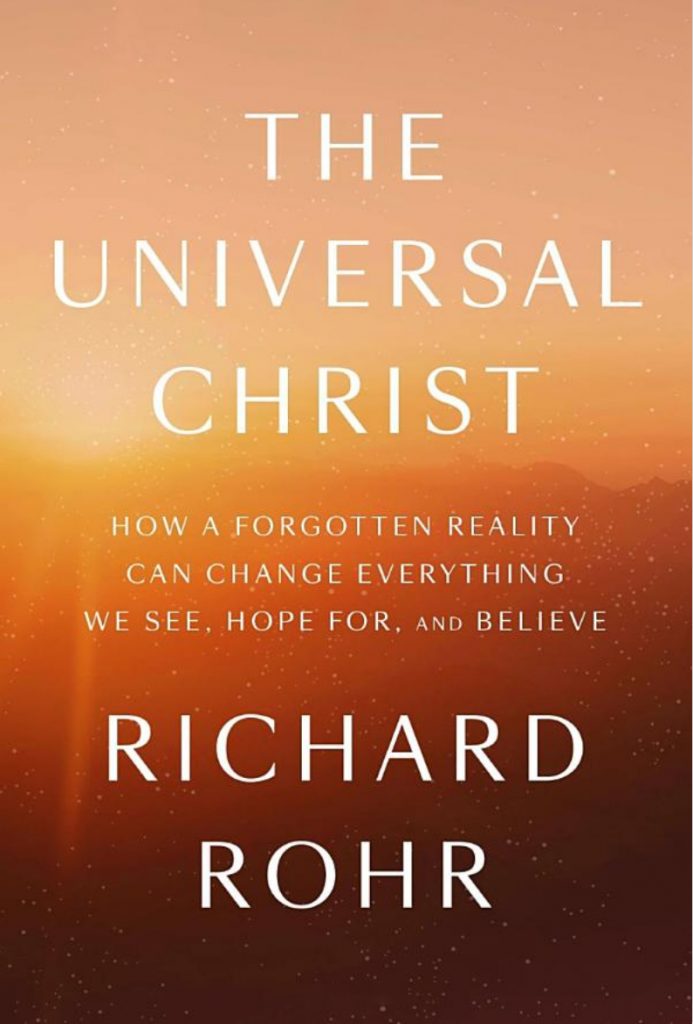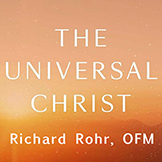
The Universal Christ: How a Forgotten Reality Can Change Everything We See, Hope For, and Believe by Richard Rohr, OFM | Convergent Press, 2019 | pp 260
“I fed you with milk, not solid food, for you were not ready for solid food.” – 1 Corinthians 3:2
To sit down to read Richard Rohr’s The Universal Christ: How a Forgotten Reality Can Change Everything We See, Hope For, and Believe is like sitting down to a twenty-course meal (i.e., there are 17 chapters, two appendices, and an afterword). And like a huge banquet, there are some courses that are scrumptious, some that are less tasty, some that will have to grow on you, and some that maybe should be off the menu. But there is no milk here, only solid food. To belabor the metaphor: after finishing this banquet, it will take you some time to digest it all.
What is Rohr trying to accomplish in this book? I think there are quite a few things:
- to argue that the Christian message is fundamentally a spiritual one and not necessarily a religious one (especially to the “spiritual but not religious” generation),
- Jesus came to love us into goodness more than to redeem us from sin (an old Franciscan debate for sure),
- the term ‘Christ’ refers to the divine core of all people and of all creation (as the title of the book says: ‘Universal’),
- a sin-based approach to spirituality leads to exclusion, scapegoating, and Pharisee’ism; whereas, a grace-based approach is more congruent with the Gospels and with Saint Paul.
I would go so far as to say that he is trying to reorient the Church and the faith away from philosophy-based theology to mysticism-based theology, and from a sin-based need for redemption to a fulfillment-based need. That’s quite an undertaking, and The Universal Christ reads like a systematic theology for this undertaking, interpreting all aspects of the faith through the Christian mystics (and occasionally through non-Christian mystics).
Does Rohr succeed? I sure hope so. Firstly, in this secular age and rationalistic age, a sin-based starting point (the Fall of Adam and Eve) no longer works. As Rohr points out, a Father sending his Son and then demanding the death of the Son to redeem the sin of Adam and Eve (either to the devil or to Himself) is no longer workable and no longer believable. I knew I was in for a wild ride when Rohr opens the book saying that the first Incarnation is in Genesis, “Then God spoke” (Genesis 1:3). The coming of Jesus is the second Incarnation. Yes, food for thought. Secondly, in this global age and information age, the world needs a global religion and an informative religion. Rohr is telling us that Mystical Christianity can offer that vision.
Do I recommend this book? Like the huge banquet that it is, I heartily recommend some of the courses (i.e., chapters), I need to chew further on other chapters, and there are a couple of chapters that I might recommend be off the menu. Overall, if you feel that you’re ready for solid food, go for it.

